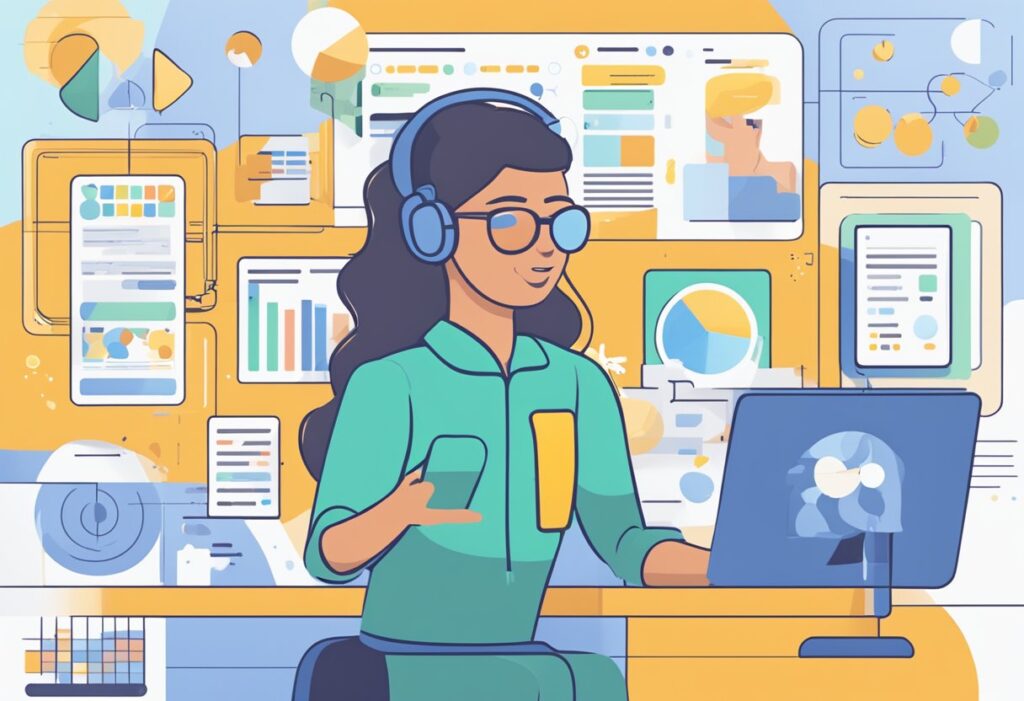Artificial Intelligence (AI) has been transforming the way businesses operate, and marketing is no exception.
Google AI has become a powerful tool for marketers to reach potential customers with precision and effectiveness.
By harnessing the power of AI-driven data analysis, personalized content creation, enhanced advertising strategies, and customer engagement, marketers can implement data-driven marketing campaigns that deliver better results.
Understanding the Role of AI in Marketing is crucial to leveraging Google AI for targeted advertising.
Google AI analyzes vast search queries, deciphering the intent behind each search, and provides marketers with valuable insights into customer preferences and behaviors.
Armed with these insights, marketers can gain a deeper understanding of their target audience and create personalized advertising campaigns that resonate with their potential customers.
Leveraging Google AI for Targeted Advertising is essential for optimizing campaign performance with AI.
By optimizing ad targeting, improving conversion rates, and streamlining customer support, marketers can implement data-driven marketing campaigns that deliver better results.
AI-driven insights for audience engagement can help marketers create personalized content and engage with their potential customers in a more meaningful way.
Key Takeaways
- Google AI offers a wealth of opportunities for marketers to reach their potential customers with precision and effectiveness.
- Understanding the role of AI in marketing is crucial to leveraging Google AI for targeted advertising.
- By optimizing ad targeting, improving conversion rates, and streamlining customer support, marketers can implement data-driven marketing campaigns that deliver better results.
Understanding the Role of AI in Marketing
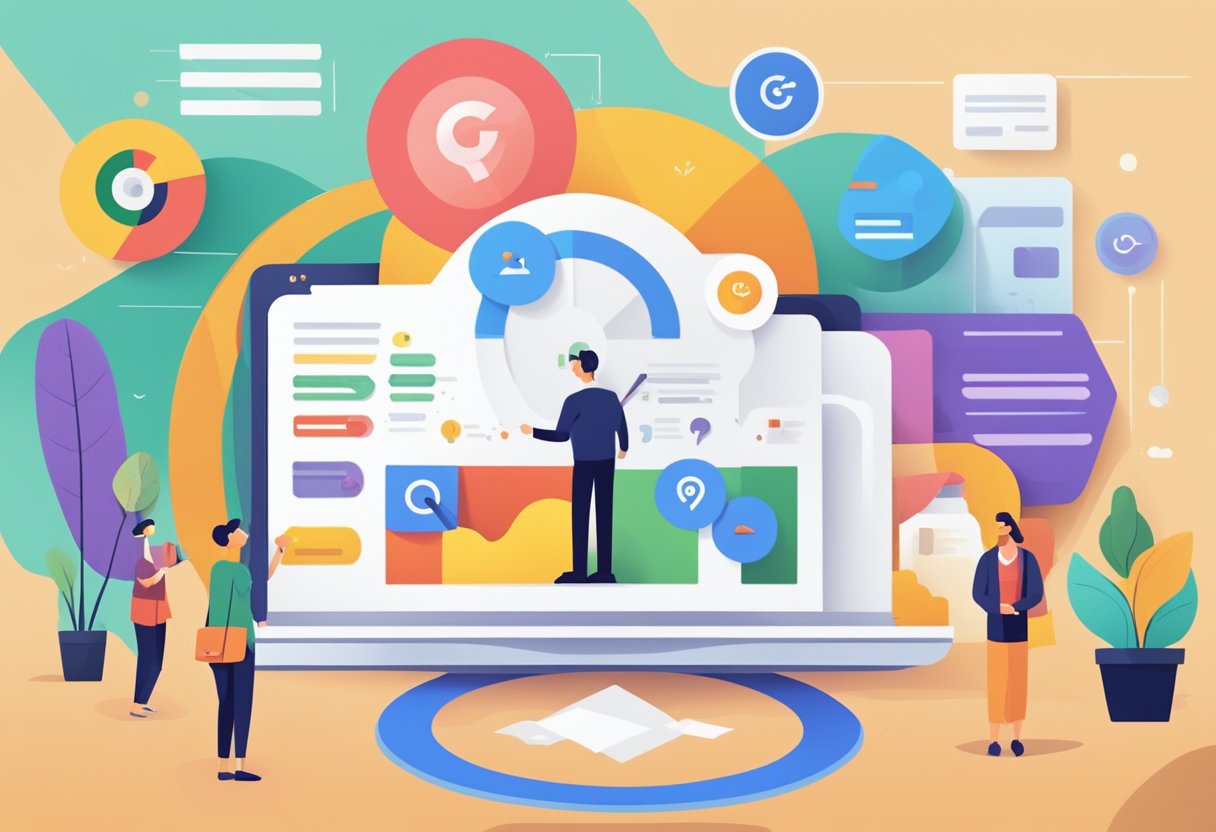
Artificial Intelligence (AI) has revolutionized the way businesses approach marketing. AI technologies have enabled marketers to personalize content, analyze customer data, and enhance advertising strategies with precision and effectiveness.
In this section, we will explore the impact of AI on digital marketing and how AI technologies enhance marketing strategies.
The Impact of AI on Digital Marketing
AI has transformed the digital marketing landscape by providing marketers with the ability to analyze vast amounts of data in real-time.
This has enabled them to understand customer behavior, preferences, and needs, which has helped them to create more personalized content and advertising strategies.
AI has also enabled marketers to optimize their campaigns across multiple channels, including search, social media, and email.
This has helped them to reach their target audience more effectively and efficiently, resulting in increased engagement and conversions.
How AI Technologies Enhance Marketing Strategies
AI technologies have enhanced marketing strategies by providing marketers with the ability to automate repetitive tasks, such as data analysis and content creation.
This has enabled them to focus on more strategic tasks, such as developing marketing campaigns and building relationships with customers.
AI has also enabled marketers to create personalized content that resonates with their target audience.
By analyzing customer data, AI technologies can identify customer preferences and needs, which can help marketers to create content that is tailored to their audience’s interests and needs.
In addition, AI has enabled marketers to enhance their advertising strategies by providing them with the ability to target specific audiences with precision.
By analyzing customer data, AI technologies can identify the characteristics of a target audience, such as their age, gender, and interests, which can help marketers to create advertising campaigns that are more effective and efficient.
Leveraging Google AI for Targeted Advertising
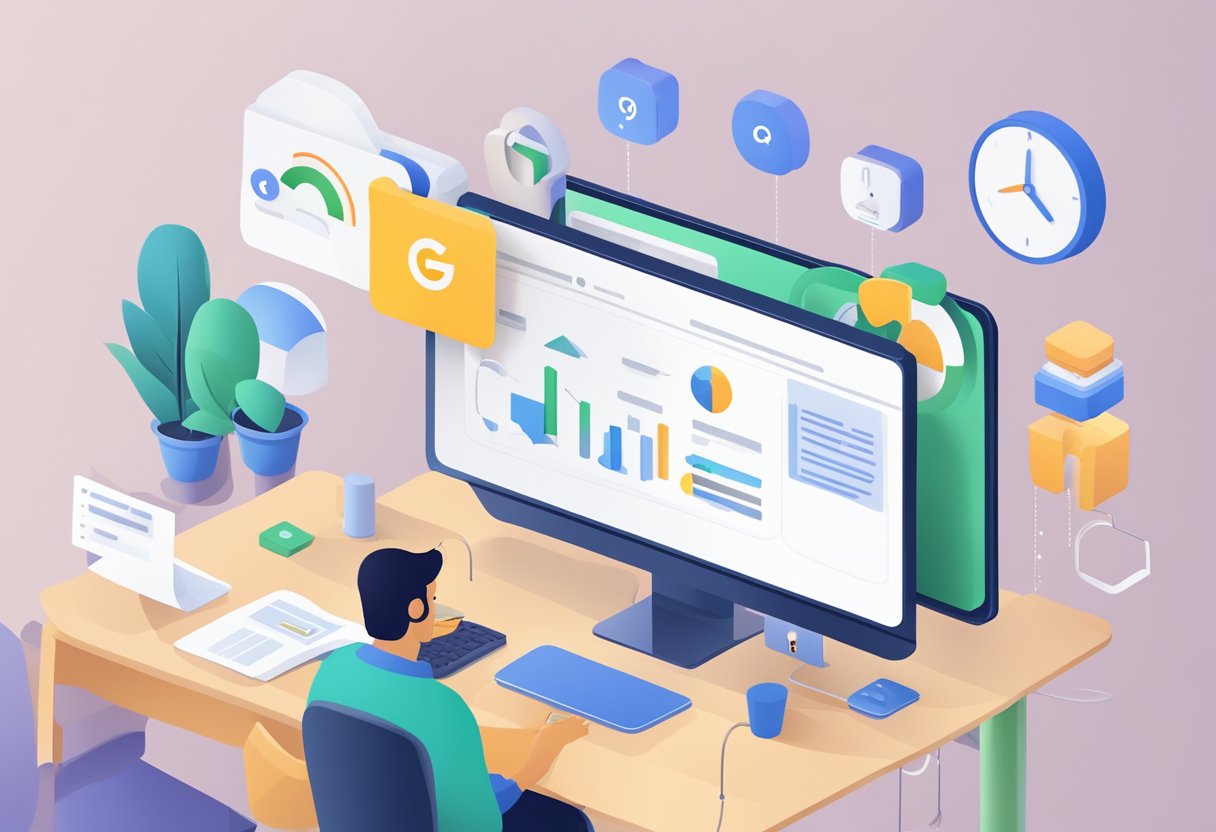
Google AI has revolutionized the way marketers advertise their products and services. By leveraging the power of AI, marketers can now reach their potential customers with precision and effectiveness.
In this section, we will explore how Google AI can help marketers improve their ad targeting and personalize their advertising campaigns.
Improving Ad Targeting with AI
One of the biggest advantages of Google AI is its ability to improve ad targeting.
By analyzing vast amounts of data, Google AI can identify patterns and trends that can help marketers target their ads to the right audience.
For example, Google AI can analyze search queries and online activity to determine the interests and behavior of potential customers.
Armed with this information, marketers can create targeted ads that are more likely to resonate with their target audience.
Google AI can also help marketers identify the most effective keywords and ad placements.
By analyzing data from search ads, Google AI can determine which keywords and ad placements are generating the most clicks and conversions.
This information can help marketers optimize their ad campaigns for maximum effectiveness.
Personalization and Customer Data Analysis
Another way that Google AI can help marketers is by providing personalized advertising campaigns.
By analyzing customer data, Google AI can create personalized ads that are tailored to the interests and preferences of individual customers.
For example, Google AI can analyze a customer’s search history and online activity to determine their interests and preferences.
Based on this information, Google AI can create personalized ads that are more likely to engage the customer.
Google AI can also help marketers analyze customer data to gain valuable insights into customer behavior.
By analyzing customer data, marketers can gain a deeper understanding of their target audience and create more effective ad campaigns.
For example, Google AI can analyze customer data to determine which demographics are most likely to engage with a particular product or service.
Armed with this information, marketers can create targeted ad campaigns that are more likely to generate leads and conversions.
Optimizing Campaign Performance with AI
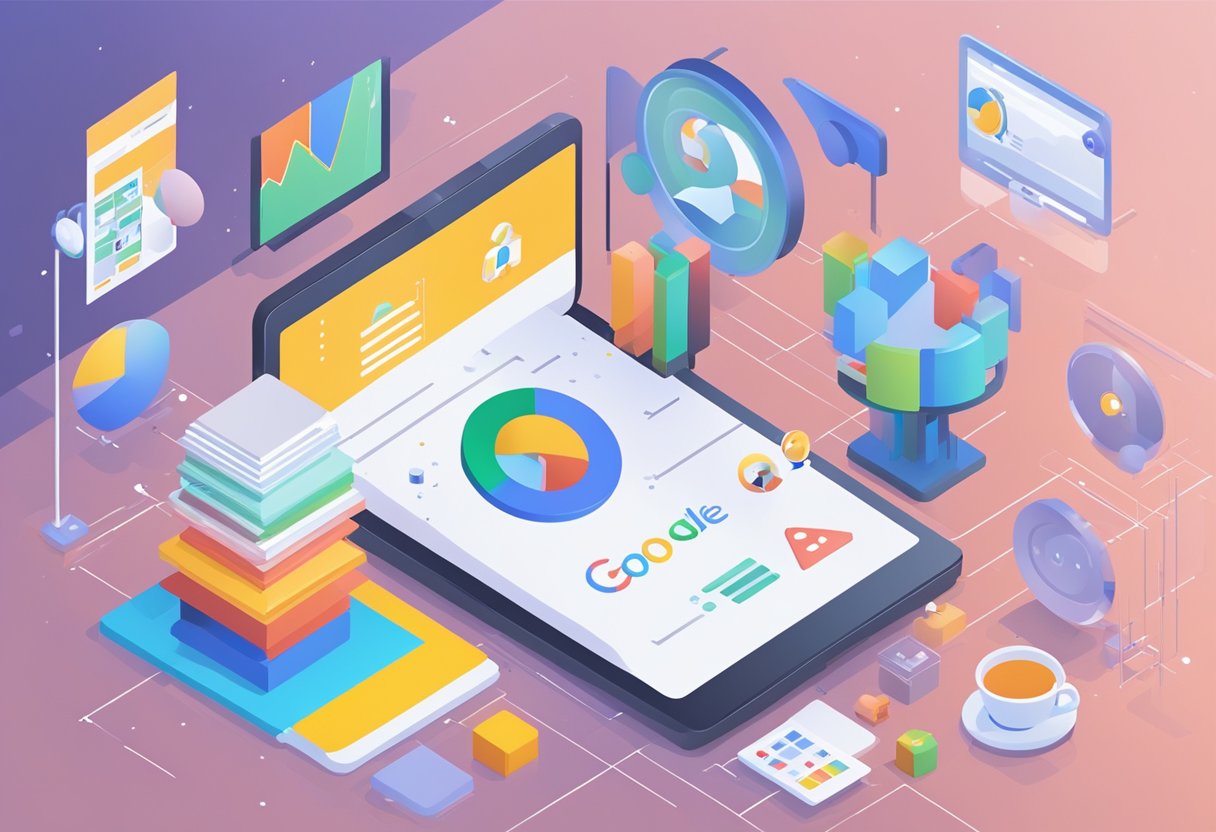
Google AI can help marketers optimize their campaigns to achieve better performance and ROI.
Enhancing ROI with Smart Bidding and Automation
Smart bidding is a machine learning-based bidding strategy that uses historical data to optimize bids for conversions or conversion value.
By analyzing past performance, smart bidding can adjust bids in real-time to maximize the chances of achieving the desired outcome.
This can help marketers achieve better ROI by reducing wasted ad spend and increasing conversions.
Automation can also help marketers save time and effort by taking care of repetitive tasks such as bid adjustments and ad optimizations.
By automating these tasks, marketers can focus on higher-level strategy and creative work, while still ensuring their campaigns are performing optimally.
Predictive Analytics for Campaign Success
Predictive analytics is the use of data, statistical algorithms, and machine learning techniques to identify the likelihood of future outcomes based on historical data.
By leveraging predictive analytics, marketers can gain insights into their campaigns’ performance and make data-driven decisions to improve their effectiveness.
For example, predictive analytics can help marketers identify which keywords and ad placements are most likely to drive conversions, and adjust their campaigns accordingly.
It can also help marketers predict which audiences are most likely to engage with their ads, and optimize their targeting to reach those audiences more effectively.
AI-Driven Insights for Audience Engagement
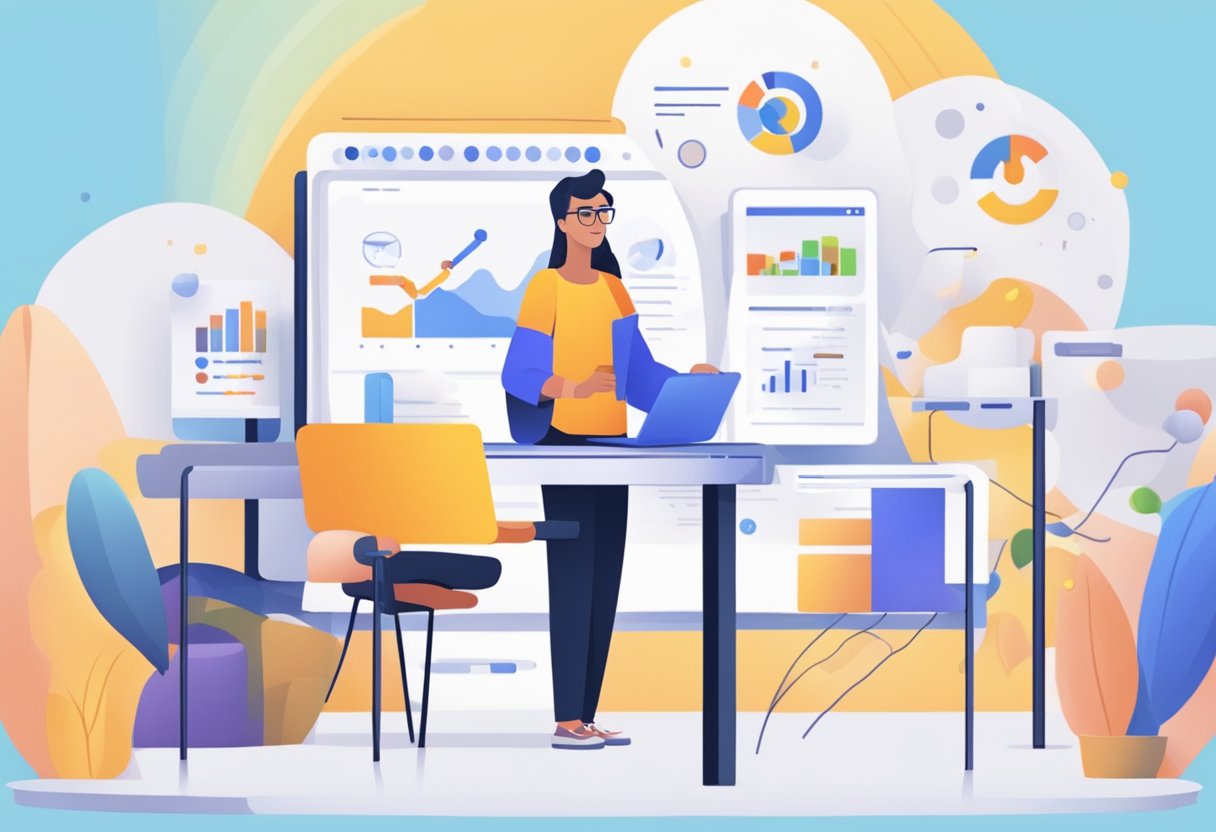
Artificial Intelligence (AI) is revolutionizing the way marketers engage with their audiences.
Google AI offers a wealth of opportunities for marketers to reach their potential customers with precision and effectiveness.
By harnessing the power of AI-driven data analysis, personalized content creation, enhanced advertising strategies, and customer engagement, marketers can implement data-driven marketing that delivers results.
Understanding and Predicting Customer Behavior
One of the most significant benefits of using AI in marketing is the ability to understand and predict customer behavior.
Google AI can analyze vast amounts of data to identify patterns and trends in consumer behavior.
This information allows marketers to create more personalized and targeted marketing campaigns that resonate with their audience.
For instance, AI-powered tools can analyze customer data to determine what products or services they are likely to be interested in.
Marketers can then create personalized content that speaks directly to their audience’s interests and needs. This approach can significantly increase engagement and conversion rates.
AI-Powered Tools for Audience Growth
Google AI offers several tools that can help marketers grow their audience and engage with their customers.
For example, conversational marketing is becoming increasingly popular, and AI-powered chatbots can help businesses engage with their customers in real-time.
These chatbots can answer common questions, provide product recommendations, and even complete transactions.
AI-powered tools can also help marketers optimize their advertising strategies.
For instance, Google’s AI-powered ad targeting can analyze vast amounts of data to identify the most relevant audiences for a particular campaign.
This approach can significantly improve the effectiveness of advertising campaigns, leading to higher conversion rates and increased revenue.
The Future of Marketing with Google AI

As AI continues to advance, marketers are presented with a wealth of opportunities to reach potential customers with precision and effectiveness.
Google AI is at the forefront of this technological revolution, offering a range of tools and features that enable marketers to create customized experiences for each person, even when dealing with large numbers of customers.
Emerging Trends in AI and Marketing
One of the key emerging trends in AI and marketing is hyper-personalization.
By analyzing vast amounts of data, AI algorithms can tailor marketing messages, product recommendations, and offers to each customer’s preferences, behaviors, and needs.
This not only saves marketers valuable time and effort but also ensures that their message resonates with the target audience.
Another trend is the use of AI to reach customers on multiple channels.
Video marketing is booming, and Google AI helps marketers understand which audiences are most receptive to video ads on YouTube.
Preparing for a Technologically Advanced Marketing Landscape
As the digital landscape continues to evolve, it is important for marketers to stay ahead of the curve and prepare for a technologically advanced marketing landscape.
This means embracing AI and other emerging technologies and using them to their full potential.
Marketers must also be prepared to adapt their strategies as AI and other technologies continue to advance.
This may mean investing in new tools and resources, developing new skills and expertise, and staying up-to-date with the latest trends and best practices.

